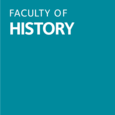The Project and Its Objectives
Firstly, the project will reconstitute a ‘lost archive’ of Eastern Christianity, and it will analyse for the first time a vast corpus of recently discovered sources. These stories of the Christian subjects of the sultan have long been scattered in monasteries and churches in Syria, Lebanon, Egypt, and Iraq, and they have been given new life through the efforts of a recent wave of European- and American-funded digitisation projects. Using these new digital resources in conjunction with published catalogues of the eighteenth, nineteenth, and twentieth centuries, the research team will chart the literary production of Eastern Christianity in Arabic, Syriac, and Karshuni from 1500 to 1750, and it will make this preliminary phase of the research available to scholars through an online bibliographical database.
The creation of a database, however, is not a goal in itself; rather, with the completion of this first phase of work (2016-17), the research team will use it as a tool for engaging in a truly ‘connected history’ of Eastern Christianity, one which seeks to explore Eastern Christianity ‘from within and without’ in this period. To this end, a diverse set of questions will drive forward the team’s research. For example: (1) What impact did the Protestant and Catholic Reformations have on Eastern Christianity, and what was the significance of Eastern Christianity to the European religious changes of the early modern era?; (2) In what ways did Eastern Christians travel so far beyond the boundaries of the Ottoman Empire?; and (3) How did individual Eastern Christians make sense of their own place in the world and how was this expressed in written, visual, and printed culture?
Each of these questions is sufficiently focused to form the basis of an individual research project while also opening up a set of wider issues for collective analysis by the research team. We are necessarily interested in issues of translation, reception, and the consequences of the European Reformation on the East. In what ways did Protestant and Catholic reformers use Eastern Christianity in their own polemics against each other? Through which media did the ideas of the Reformation circulate to a wider audience of Eastern Christians? How did particular institutions, such as the Maronite College in Rome, missionary households in the Ottoman Empire, and trading companies contribute to the exchange of ideas, practices, and religious beliefs between Europeans and Eastern Christians? We are also interested on wider macro issues related to the mechanisms that enabled the physical movement of Eastern Christians across the early modern world. Especially productive themes for analysis include travel, pilgrimage, captivity, trade, scholarly exchange, and alms-collecting, as well as the strategies and identification documents used by travellers. Moreover, the team will also shift its attention from the macro to the micro by seeking to understand the range of individual experiences had by Eastern Christians abroad. The project will identify the motivations that encouraged Eastern Christians to leave the Ottoman Empire—for example, local infighting, economic hardship, religious conversion—as well as the various trajectories of their lives once they settled in new societies. Writing a ‘connected history’ requires bringing together in a single field of inquiry the study of Arabic, Syriac, and Karshuni literature in conjunction with a wide range of evidence from archival and printed works in European languages. Needless to say, this is the sort of work that can only be accomplished through the collaborative efforts of a multi-lingual team of researchers with direct access to a wide range of archival material.
This project will also identify the ways in which Eastern Christians themselves conceived of their own identities, histories, and memories. For example, the Church of the East in modern-day Iraq sent its own missionaries eastwards to Central Asia and China in the seventh century, and memories of this missionary tradition lived on among Iraqi Christians in oral story-telling and popular culture well into the nineteenth century. The project will use such layers of memory to explore wider questions related to notions of history, identity, and community in Eastern Christianity. As in other elements of this project, central and unique to this endeavour will be the utilisation of a range of untapped sources, such as the correspondence, ethnographies, and testimonies written by European missionaries in the Ottoman Empire from the seventeenth to the nineteenth centuries. Using such evidence, we will explore how Eastern Christians imagined their own past and their place in the wider world.



